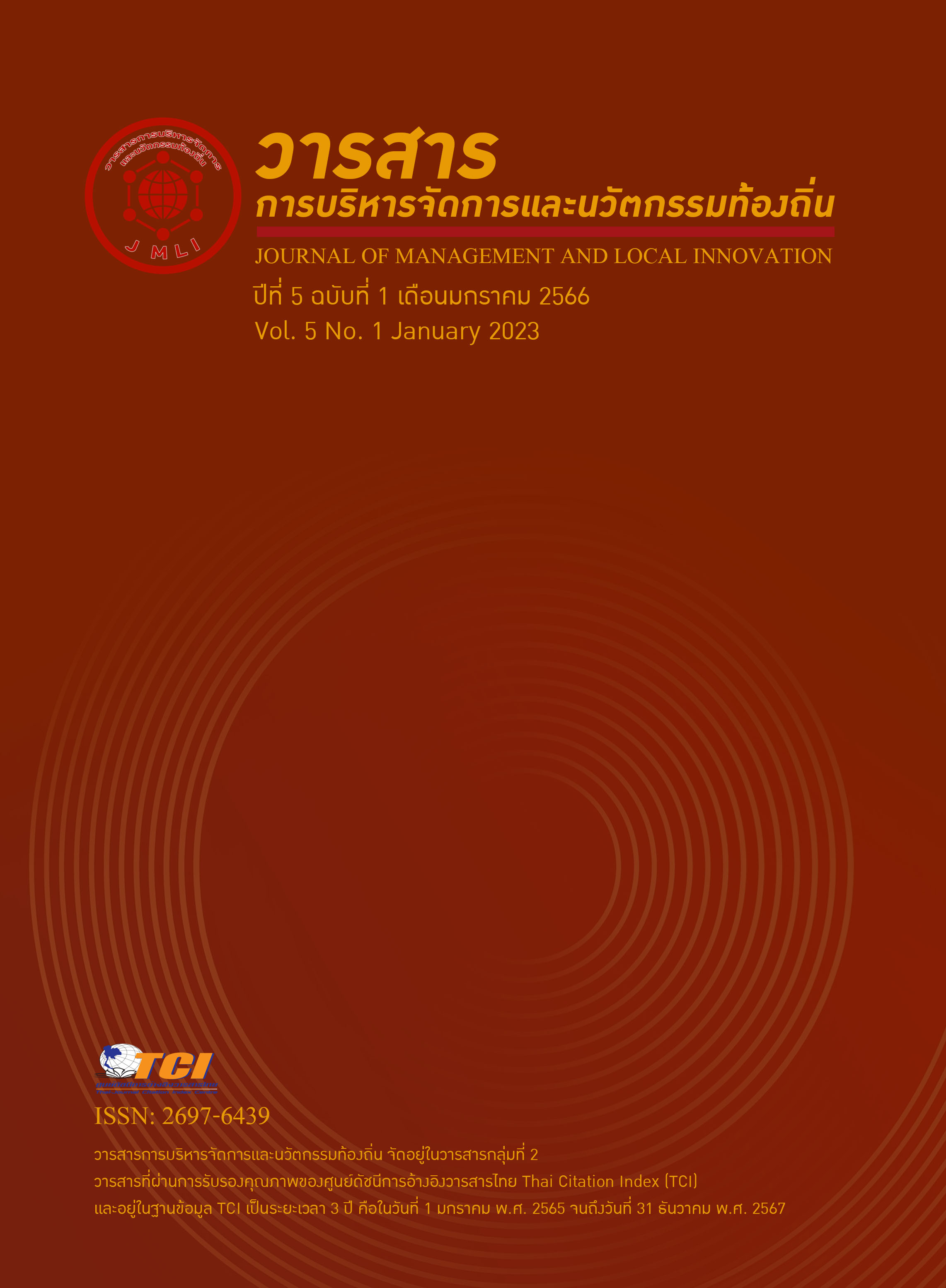Study the Model of Teaching and Learning in Civic Duty Course Along the Yonisomanasikan: A Case Study of Samakkhi Wittaya School, Lamnarai, Lopburi Province
Keywords:
Instructional management model, civic duty course, YonisomonasikanAbstract
Research subject “Study the model of teaching and learning in civic duty course Based on the Yonisomanasikarn Line: A Case Study of Samakkhi Witthaya School, Lamnarai, Lopburi Province” This research is a one-group experimental research with One Group Pretest - Posttest Design. The objectives of this research consisted of 1) to Study the Yonisomanasikan teaching. Secondary school students, Samakkhi Wittaya School, Lamnarai, Lopburi Province 2) to compare the Yonisomanasikan teaching method. Secondary school students at Samakkhi Wittaya School, Lamnarai, Lopburi Province before and after school before and after school with learning Citizenship, morality, collecting data using quizzes Data analysis was done using a computer program to analyze ready-made statistical data. The data were analyzed by descriptive statistics, i.e. Mean and standard deviation, and inferential statistics were the comparison of test scores before and after school. By analyzing the differences of the samples (Paired Sample t-test) The results showed that Teaching by Yonisomanasikan By creating a good attitude towards learners, setting an appropriate atmosphere Build good relationships and offer stimuli for learners to practice collecting information, facts, knowledge, and process skills. Practicing rational thinking Find the elements that produce a summary. and collaborative assessment of learners and teachers. Learning of each group of learners is learning together within the group. Able to search for information, reasoning, conclusions on the assigned subject. Can present content for other groups to learn Answer questions and exchange knowledge together. causing good learning in the subject matter Most of the students were able to learn rationally according to the Yonisomanasikara method, more than 80%. Secondary school students have academic achievements by using Learning Management Plan 1 on Dharma Principles in Coexistence in Buddhism, average score before class 3.75, average score after school 6.75, value t - 16.43. Compared to other religions, the average score before school was 4.25, the average score after school 7.31, the t value - 15.87, the score after studying was significantly higher than the score before studying at the .01 level.


